design studies
-
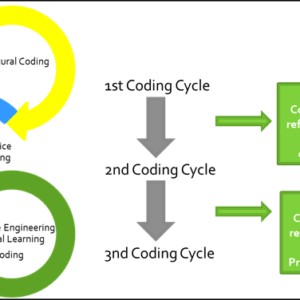
Reflective Practice in software development studios: findings from an ethnographic study
Dors, Tania M.; van Amstel, Frederick M.C.; Binder, Fabio; Reinehr, Sheila dos Santos; Malucelli, Andreia. (2020). Reflective Practice in Software Development Studio: findings from an ethnographic study. In: Proceeding of the 32nd Conference on Software Engineering Education and Training (CSEE&T), Munich. https://doi.org/10.1109/CSEET49119.2020.9206217 - May 19, 2020 -
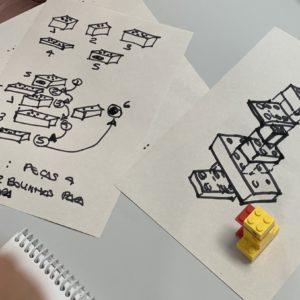
Design and other types of thinking
Design and other types of thinking (2020) was a workshop offered in UTFPR teaching seminars. Design thinking is a contemporary approach to innovation, entrepreneurship, project development, and education that makes designers’ thinking accessible to professionals in other areas. While it has drawn attention to creative processes typical of design, this approach has overshadowed the thoughts […] - Apr 27, 2020 -
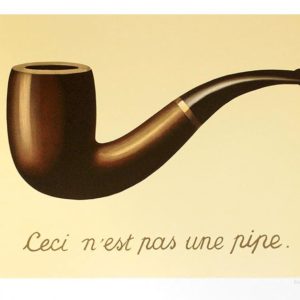
What is a contradiction and why it is relevant to design research?
Design research is increasingly concerned with being part of change processes in everyday life, in communities, in organizations, and in large-scale sociotechnical systems. Despite the growing interest, the field is not prepared to deal with this topic. The predominant theories in design research were crafted to understand individuals interacting with products, or groups of people […] - Apr 21, 2020 -
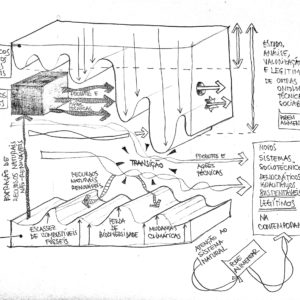
Prospective Design graduate program
From 2019 to 2023, Frederick was part of the research committee that laid the foundations for the Prospective Design graduate program at UTFPR, the first of its kind in the nation. The Master’s course was officially launched in 2025, and a PhD track is expected to be launched by 2030. The program aims to train […] - Apr 8, 2020 -
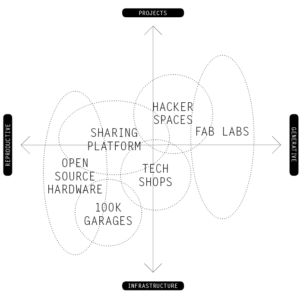 Open Design was initially introduced as an analog to Open Source Software, a concept which explains why software source code should be part of an official product release. The analogy went by stating that electronic drawings and models be released together with physical products, in the hopes of enabling modifications or self-production through digital fabrication. […] - Apr 6, 2020
Open Design was initially introduced as an analog to Open Source Software, a concept which explains why software source code should be part of an official product release. The analogy went by stating that electronic drawings and models be released together with physical products, in the hopes of enabling modifications or self-production through digital fabrication. […] - Apr 6, 2020 -
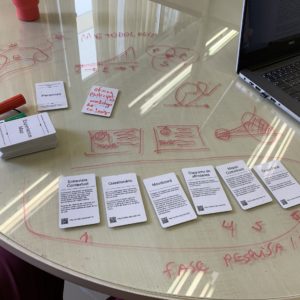
Designing Metaobjects for Collaboration, Participation and Debate
This research theoretically develops and empirically tests the concept of metaobject in design projects with special needs for collaboration, participation, or debate. Metaobjects are objects that represent and support the design of new objects in metadesign processes, such as a sketch, a model, or a prototype. In design projects, metaobjects must represent multiple perspectives and […] - Mar 25, 2020 -
 I have developed for my Design Thinking course a comprehensive explanation on how design can be part of big transformations in society. Instead of making changes to society, as in the paradigm of “social impact”, I teach my students to discover transformations already in course, understand them, and support them. The concept of contradiction is key to my approach: a unite […] - Oct 28, 2016
I have developed for my Design Thinking course a comprehensive explanation on how design can be part of big transformations in society. Instead of making changes to society, as in the paradigm of “social impact”, I teach my students to discover transformations already in course, understand them, and support them. The concept of contradiction is key to my approach: a unite […] - Oct 28, 2016 -
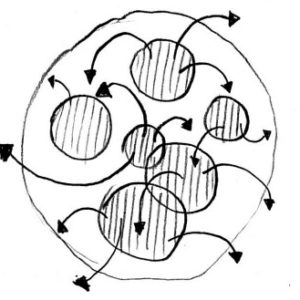 In the first lecture of my Design Thinking course, I gave a historical perspective on the evolution of the design object. According to my thesis work, the object of design expanded in the last century from complex entities to emergent performances, such as experiences, interactions and business. The characteristics of this object are: It includes the user behavior, as […] - Sep 16, 2016
In the first lecture of my Design Thinking course, I gave a historical perspective on the evolution of the design object. According to my thesis work, the object of design expanded in the last century from complex entities to emergent performances, such as experiences, interactions and business. The characteristics of this object are: It includes the user behavior, as […] - Sep 16, 2016 -
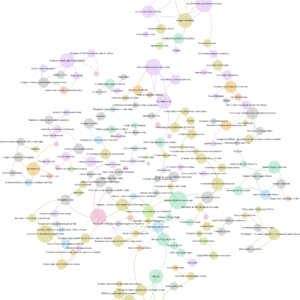
Digital Design Trends Laboratory
Regular course – 40hs – Digital Design Bachelor – Catholic University of Paraná This course helps students find a relevant topic for their final graduation work. They learn how to deal with trends and receive the task to identify today’s digital design trends. The trends identified are published in an online magazine. At the end […] - Aug 8, 2016 -
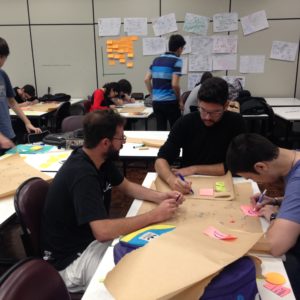 45 hours – Graphic Design – PUCPR. This is an elective course offered to students from any of the bachelors of Catholic University of Paraná. The purpose was to provide them the opportunity to develop multidisciplinary projects based on the design thinking approach. Syllabus: Typology of design thinking, wicked problems, co-creation, grassroots design, participatory design, design […] - Aug 7, 2016
45 hours – Graphic Design – PUCPR. This is an elective course offered to students from any of the bachelors of Catholic University of Paraná. The purpose was to provide them the opportunity to develop multidisciplinary projects based on the design thinking approach. Syllabus: Typology of design thinking, wicked problems, co-creation, grassroots design, participatory design, design […] - Aug 7, 2016 -
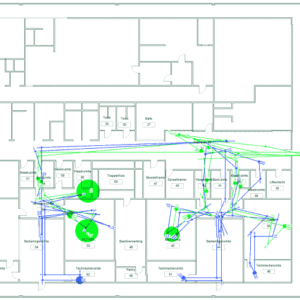
The social production of design space
Van Amstel, F.M.C; Hartmann, T; Voort, M. van der and Dewulf, G.P.M.R. The social production of design space, Design Studies, 46, 2016, p. 199–225. DOI: https://doi.org/10.1016/j.destud.2016.06.002 - May 2, 2016 -
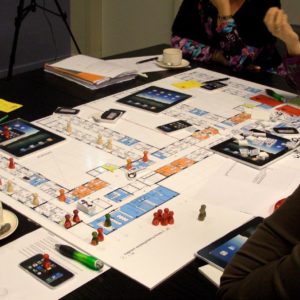
The Transformative Potential of Game Spatiality in Service Design
Van Amstel, Frederick M.C. and Garde, Julia. Games to explore the possibilities of space and the space of possibilities in service design. Simulation & Gaming, 47 (5), 2016, p. 628-650. https://doi.org/10.1177/1046878116635921 - Mar 4, 2016 -
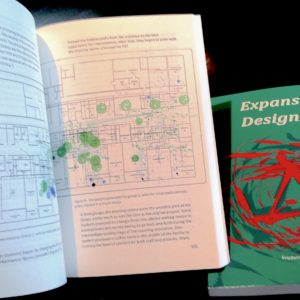
PhD thesis – Expansive design: designing with contradictions
A quick guide to this thesis: Abstract: This thesis looks at the practice of design as it emerges in architectural design and service design. The lens adopted considers design both as an activity as well as a space full of contradictions, which are accumulated tensions. Design activity is a professional occupation that interacts with other […] - Dec 14, 2015 -
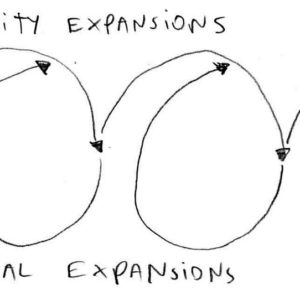 Expansive design is a concept defined by psychologist Yrjö Engeström to characterize a particular way of doing interaction design which I developed further in my PhD thesis. It means expanding the design activity towards the use activity, or in other words, connecting them together. This connection is characterized by co-creation; instead of merely producing objects […] - Nov 20, 2015
Expansive design is a concept defined by psychologist Yrjö Engeström to characterize a particular way of doing interaction design which I developed further in my PhD thesis. It means expanding the design activity towards the use activity, or in other words, connecting them together. This connection is characterized by co-creation; instead of merely producing objects […] - Nov 20, 2015 -
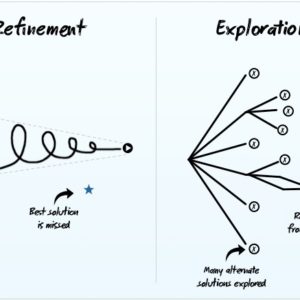
The alienation of design possibilities
The progressive contraction of design representations is synchronized with the alienation of design possibilities. Alienation means that some of the design possibilities are taken out of the design space and, therefore, never considered. These possibilities are put aside for being unacceptable, unthinkable, or unknown. This can happen by many reasons. In the socialization of the […] - Mar 16, 2015 -
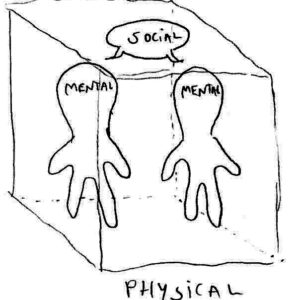
The socialization of the design space
The expansion of the design object from materials to experiences is synchronized with the socialization of the design space. The design space can be understood in three ways: Saying that, I believe there is a strong link between the physical, the social and the mental, one feeding the other. In that sense, the design space […] - Mar 16, 2015 -
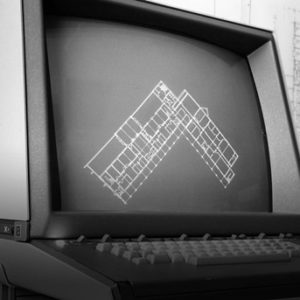
The contraction of design representations
In the last post, I described the expansion of the design object in the last centuries. This process is followed by another historical change in the opposite direction. Instead of expanding together with the object, the design representations are becoming smaller and more precise. The representations are being contracted in the hopes of corralling the […] - Mar 12, 2015 -
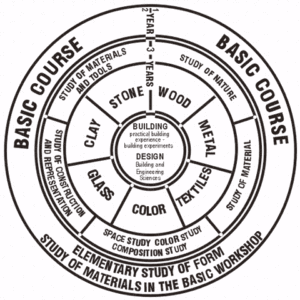
The expansion of the design object: from materials to experiences
The object of design was once easy to grasp. If we look at the first Bauhaus curriculum, we see the prominent role the building materials played in the designer’s formation. The aspiring designer was supposed to master these materials and tranform them into aesthetical compositions. At this time, the materials were the design object: concrete, […] - Mar 9, 2015 -
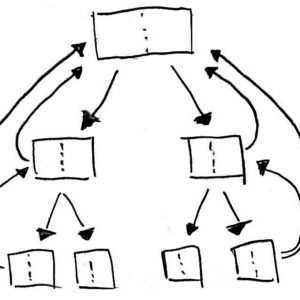
Reductionism and expansionism in design theory
In the readings of my PhD research, I came across the term reductionism a lot. This term is used to criticize or warn against the trap of analyzing social phenomena in a somewhat restricted way, with no clear definition of its own. After years of reading those uses, I got a tacit understanding of what […] - Feb 23, 2015 -
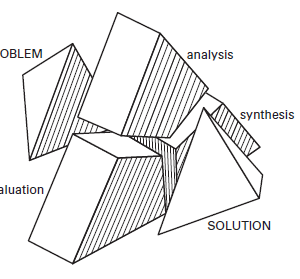 Both Design Thinking business discourse and research relies heavily on the problem-solution dichotomy for explaining what design is. The emphasis is given to go beyond the common-sense notion of design as form shaping and open new spaces for design in science and business. The aesthetics of form shaping is not entirely rejected in this turn, but reduced to an aspect […] - May 13, 2011
Both Design Thinking business discourse and research relies heavily on the problem-solution dichotomy for explaining what design is. The emphasis is given to go beyond the common-sense notion of design as form shaping and open new spaces for design in science and business. The aesthetics of form shaping is not entirely rejected in this turn, but reduced to an aspect […] - May 13, 2011 -
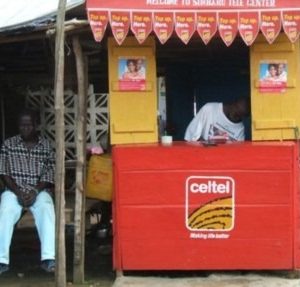
Designer’s role in a Free Design world
At the beginning of the year, I gave a talk with my friend Gonçalo Ferraz at a Design student conference about the future role of the professional designer. We envisioned a big leap in design practice, moving from designing products to designing processes. Going further than Service Design and Co-design approaches, we expect that people […] - May 2, 2011